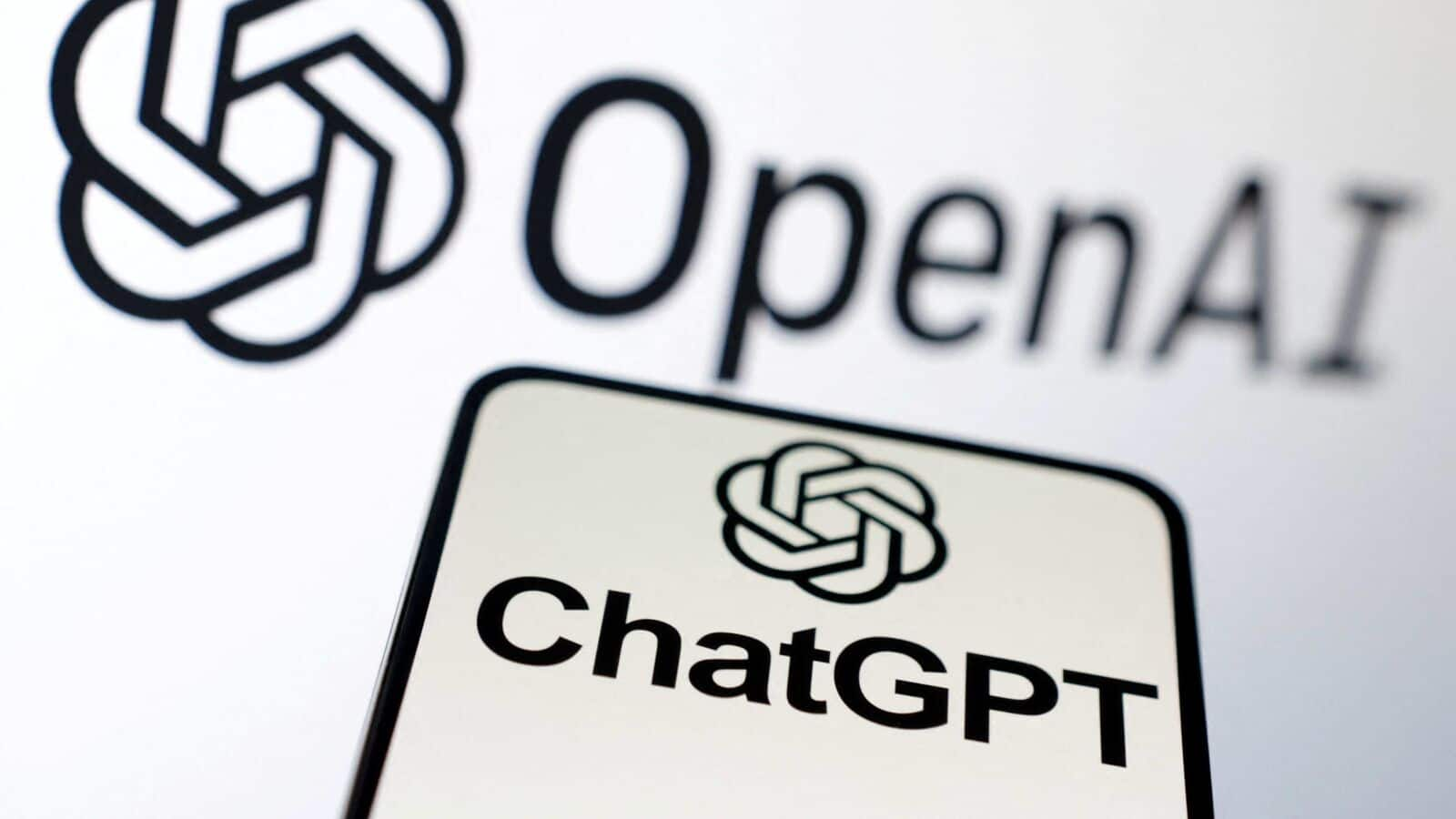ChatGPT Maker OpenAI Investigated By FTC: Key Questions And Concerns

Table of Contents
The FTC Investigation: What are the Key Concerns?
The FTC, the United States' main consumer protection agency, has the authority to investigate and take action against companies engaged in unfair or deceptive business practices. Its role is to ensure that businesses operate honestly and fairly, protecting consumers from harm. In the case of OpenAI, the FTC's concerns are multifaceted and center on the potential risks associated with ChatGPT's capabilities and data handling practices. Specifically, the FTC's investigation is likely focused on:
-
Data security breaches and vulnerabilities: ChatGPT collects vast amounts of user data, raising concerns about potential security breaches and vulnerabilities. A data breach could expose sensitive personal information, leading to identity theft, financial loss, and reputational damage. The FTC will undoubtedly scrutinize OpenAI's security protocols and data protection measures.
-
Dissemination of false information and misinformation: ChatGPT's ability to generate human-quality text can be exploited to create and spread misinformation at an alarming rate. The FTC is concerned about the potential for ChatGPT to be used to generate convincing but false narratives, impacting public opinion and potentially causing real-world harm. This raises questions about OpenAI's responsibility in mitigating the risks associated with misinformation generated by its technology.
-
Algorithmic bias and discriminatory outcomes: Like many AI systems, ChatGPT's training data may reflect existing societal biases, leading to discriminatory outputs. The FTC is likely investigating whether ChatGPT perpetuates or amplifies biases related to race, gender, religion, or other protected characteristics, leading to unfair or discriminatory outcomes. Algorithmic bias mitigation is a key concern here.
-
Lack of transparency regarding OpenAI's data collection and usage practices: The FTC is likely concerned about the lack of transparency surrounding OpenAI's data collection and usage practices. Users need clear and comprehensive information about what data is collected, how it is used, and what measures are in place to protect their privacy. This lack of transparency could constitute a violation of consumer protection laws.
-
Potential violations of consumer protection laws: The FTC's investigation will determine whether OpenAI's practices violate various consumer protection laws, including those related to unfair or deceptive acts or practices. This could involve examining user consent, data security protocols, and the overall fairness of OpenAI's business practices related to ChatGPT. The FTC's enforcement actions could include fines, injunctions, or other remedies.
Data Privacy and the ChatGPT User Experience
ChatGPT collects various types of user data, including the conversations users have with the chatbot, their prompts, and their feedback. This data is used to train and improve the model, personalize the user experience, and for other business purposes. The implications for user privacy are significant, especially considering the sensitive nature of some user inputs. Key privacy concerns include:
-
Storage and retention of user data: How long does OpenAI store user data? What measures are in place to ensure the secure storage and disposal of this data?
-
Data security measures: What specific security measures has OpenAI implemented to protect user data from unauthorized access, use, or disclosure? Are these measures sufficient to meet industry best practices and comply with relevant regulations such as GDPR and CCPA?
-
Potential for data breaches and their consequences: What are the potential consequences of a data breach? What steps has OpenAI taken to minimize the risk of a breach and to respond effectively in the event of a breach?
-
User consent and control over their data: Does OpenAI obtain informed consent from users before collecting and using their data? Do users have control over their data, including the ability to access, correct, or delete it? Data minimization and user rights are crucial aspects of this area. Data security best practices are paramount.
Algorithmic Bias and Fair Use of Generative AI
Algorithmic bias refers to systematic and repeatable errors in a computer system that create unfair outcomes, such as providing different services to different groups of people. In the context of ChatGPT, algorithmic bias can manifest in several ways, for example, by generating responses that reflect or perpetuate harmful stereotypes. This can lead to unfair or discriminatory outcomes, particularly for marginalized groups. Mitigating algorithmic bias is a significant challenge:
-
Diverse and representative training data: The quality of the training data significantly impacts the fairness and accuracy of an AI model. Using diverse and representative data is crucial for mitigating bias.
-
Methods for detecting and addressing bias: Various techniques can be used to detect and address bias in AI models, including auditing the model's outputs, analyzing the training data, and using fairness-aware algorithms.
-
Ethical implications of biased AI outputs: Biased AI outputs can have serious ethical implications, perpetuating stereotypes, discrimination, and inequality. Responsible AI development requires careful consideration of these ethical implications.
-
Human oversight in mitigating bias: Human oversight is crucial in mitigating bias in AI systems. Human reviewers can help identify and address biased outputs, ensuring that the AI system operates fairly and ethically. Responsible AI development emphasizes the importance of human-in-the-loop systems.
The Future of AI Regulation in the Wake of the OpenAI Investigation
The FTC's investigation into OpenAI will likely have significant implications for the future of AI regulation. It could lead to increased scrutiny of AI companies' data practices, the development of new regulations for generative AI technologies, and a greater emphasis on transparency and accountability in AI development. Potential regulatory outcomes include:
-
Increased scrutiny of AI companies' data practices: AI companies can expect increased scrutiny of their data collection, storage, and usage practices. Regulations may require greater transparency and stricter data protection measures.
-
Development of new regulations for generative AI technologies: The unique challenges posed by generative AI technologies like ChatGPT may necessitate the development of new regulatory frameworks specifically tailored to address these technologies.
-
Increased emphasis on transparency and accountability in AI development: There will likely be a greater emphasis on transparency and accountability in the development and deployment of AI systems. This could involve requirements for auditing AI systems, disclosing potential biases, and providing clear information to users about how AI systems work.
-
Potential limitations on the use of AI in certain contexts: Regulations may place limitations on the use of AI in sensitive contexts, such as healthcare, finance, or law enforcement, to mitigate potential risks. AI governance will become increasingly important.
Conclusion
The FTC's investigation into OpenAI and ChatGPT underscores the urgent need for robust regulations and ethical guidelines governing the development and deployment of powerful AI technologies. The investigation highlights significant concerns regarding data privacy, algorithmic bias, and the potential for misuse of generative AI. The future of AI hinges on responsible development and ethical considerations. Stay informed about the ongoing OpenAI investigation and the evolving landscape of AI regulation. Learn more about data privacy and the implications of using ChatGPT and other generative AI tools. Demand transparency and accountability from AI companies, and advocate for regulations that protect consumers and promote responsible innovation in the field of OpenAI and similar AI technologies.

Featured Posts
-
 Klachten Over Angstcultuur Bij Npo Schaduwzijde Van Leeflangs Leiderschap
May 15, 2025
Klachten Over Angstcultuur Bij Npo Schaduwzijde Van Leeflangs Leiderschap
May 15, 2025 -
 Election Ban For Sheikh Hasinas Party In Bangladesh
May 15, 2025
Election Ban For Sheikh Hasinas Party In Bangladesh
May 15, 2025 -
 Focus Remains Butler On The Task Not Miami
May 15, 2025
Focus Remains Butler On The Task Not Miami
May 15, 2025 -
 Padres Comeback Victory A Fight To The Finish Against The Cubs
May 15, 2025
Padres Comeback Victory A Fight To The Finish Against The Cubs
May 15, 2025 -
 Mlb Daily Fantasy Baseball May 8th Picks Sleepers And One To Avoid
May 15, 2025
Mlb Daily Fantasy Baseball May 8th Picks Sleepers And One To Avoid
May 15, 2025
